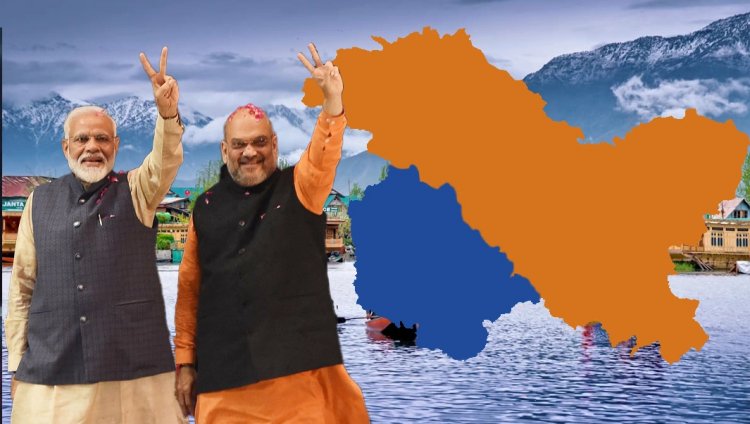Jammu and Kashmir: Four Years after Abrogation of Article 370
Asia News Agency

J&K Constitution limited executive powers of Union of India, says Supreme Court
On the fourth anniversary of the abrogation Article 370, even as a Supreme Court Bench headed by the Chief Justice is hearing a series of petitions challenging the President’s abrogation of Article 370 from the Indian Constitution, there have been various views expressed by experts and by the government. BJP ideologue Ram Madhav claims that Jammu and Kashmir is more secure, economically better-off, and socially more stable. Normalcy, he says is the new normal. The Lieutenant Governor of the Sate Manoj Sinha claims that infrastructure is being developed at a rapid pace, investment is flowing in, and ‘ordinary people’ are now free to express their opinions. Analyst Akhilesh Mishra echoes these views.
All three, writes Radha Kumar (former government-appointed interlocutor for Jammu and Kashmir) “mislead on fact as well as approach. The facts, unfortunately, indicate that all three are wrong on the ground situation….” Kumar talks about detention of scores of people, ‘Pandits’ (Hindus) and migrant workers being targeted by militants, crimes against women, rising unemployment etc.
Issues of Federalism
Even as the Supreme Court is currently hearing the legal and constitutional dimensions of the revocation of Article 370, Alok Prasanna Kumar (Co-Founder and Lead, Vidhi Karnataka) examines the deeper political questions relating to federalism that the move has raised.
India’s Constitution follows the model of 'asymmetrical federalism’ where different federal units (states) do not necessarily have the exact same relationship with the Union. This is partially by design and partially the outcome of historical developments, according to Kumar. This “model of asymmetric federalism has helped the nation stay united in the face of strong secessionist movements that have sprung up across the countries. The existence of Articles 371-A to 371-J stands testimony to the idea that a one-size-fits-all kind of federalism does not suit India and local accommodations will be needed to address local needs. However, the unilateral revocation throws all of that into question.”
Does the revocation of Article 370 make India less federal
Kumar also makes the point that Jammu and Kashmir “is the first instance of a full state having been ‘downgraded’ to a Union Territory subject only to direct central rule…..
“Even as states have been organised and reorganised on various bases over the years, the understanding of federalism has also evolved away from the simple binary of ‘federal’ (like the United States) or ‘unitary’ (like the United Kingdom). One could argue, reasonably, that the need for centralisation of powers in the first couple of decades of Independence has been replaced by the need to decentralise powers to make for a stronger Union. India is a more federal polity in 2023 than it was in 1950. However, one feels compelled to ask whether the revocation of Article 370 is a move to make India less federal overall.”
Need to consult people of the state or their representatives
The other question relates to the need of the Union of India to consult people of the state or their representatives on any change to the status of a state. While there is no such constitutional requirement, Kumar writes “the requirement of a positive resolution in that state’s legislative assembly has been followed by convention. However, this convention was first ignored in the context of the creation of Telangana where the bifurcation of the state was carried out despite the then Andhra Pradesh Legislative Assembly voting against it. In the context of Jammu & Kashmir, there was no elected assembly at all to even pass a resolution in favour or against the revocation of Article 370. Even assuming that there was some popular demand in Ladakh for the bifurcation of the state, the question is why the popular demand in Ladakh for bifurcation required an extinction of Jammu & Kashmir’s statehood when no such demand was made in the former state itself.”
















